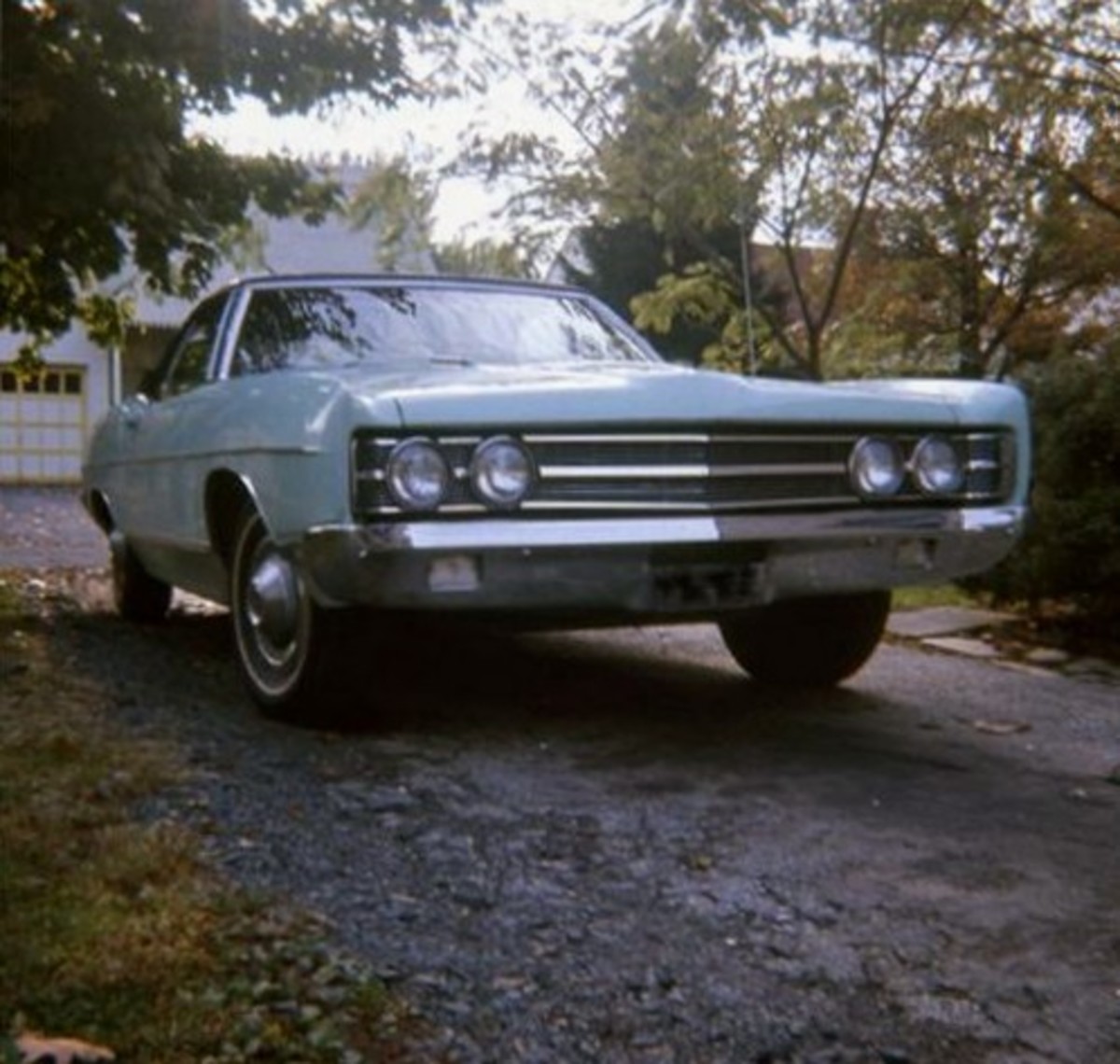Hello, New Age!
Here we go again!
In May of 1984 Alvin Toffler published THE THIRD WAVE, a book that detailed what he called a new industrial revolution. Toffler documented dramatic and jarring changes that were taking place back then as we shifted from a ‘nuts and bolts’ world to a new, faster and more challenging society in terms of morals, economics, politics, science, manufacturing etc.
At the time, when I read that book I knew the swift pace of my own life was increasing, but I could barely imagine what was yet to come. Little did I know that what Toffler envisioned would pale in comparison to what actually has transpired in the intervening 35 years.
A few personal examples
In 1986 our oldest son went off to college, a small but elite school with a demanding curriculum and first-rate faculty. That school functioned on a 10-week term system, and two-and-a-half weeks into his first term as a freshman he called home and told my wife, “Either I get a computer, or I have to quit school.” Naturally she asked him why, and he answered this way: “In the next 7.5 weeks I have to do ten short papers, two term papers, a number of book reports, and three projects to be presented in writing and orally in class. Even if I had all of those written right now, I couldn’t type them all up in the time I have left, so—like I said, either I get a computer or I have to quit school.”
So Matt and I went shopping. He already knew what he wanted, an Apple SE/30, but I insisted that we look at other types as well. In the end we purchased what he wanted, of course, through a school-buy program, and in less than a year I’d purchased that same type of computer for myself, and then later, another one. After that it was an Apple iMac G3 (a ‘bubble-gum’ case in blue), and later we bought two Apple ‘clamshells’ (orange for my wife, blue for our daughter).
My own encounter with up-to-speed technology
I’d spent ten years by then writing sermons by hand on legal pads, but didn’t think I’d like doing that on a computer. After all, I was used to striking out words and phrases and following arrows and lines to corrections I'd made in the margins. So, when I sat down to construct my first sermon on an SE/30 I was determined not to like the process. 90 minutes later, however, I was sold. I could delete sections at will, or cut and paste them as I wished, if something was savable. And for some years after, I kept up that practice on the same computer, a second version after the first one couldn’t keep up in terms of RAM.
Two quick updates that I didn't expect
But then one day a strange thing happened. We were living in Michigan by then, 90 miles from Chicago where we’d previously lived and studied. So, after visiting my mother in northeast Illinois, I stopped downtown in the Loop for a few hours to enjoy being back there again. On a whim I decided I’d walk south on Wabash a few blocks and eat at George Diamond’s Steak House, one of my old hangouts. Only it wasn’t there! That restaurant had closed two years before. So I did the next best thing, I thought. I went a block further south to check out Rose Records and was relieved to find that store still in business. I went inside, but that’s when the next ‘wave’—to use Toffler’s term—came crashing in. There were no records inside the store, not one LP in the entire three floors of that building, except for one small table upstairs, way in back. Instead, all the music was contained in racks of CD’s, and we didn’t even have a CD player at home yet!
Anticipating Reactions from my readers
By now you’re thinking, ‘Well, of course, but that was decades ago, and besides, you should have expected those changes. "Get over it,” ' as Mick Mulvaney said recently about a much more insidious topic. But here’s the catch.
I've caught on to all those new shifts in American culture by now, or at least I thought so. After all, I’m somewhat used to have lifetime store chains like Sears and Toys Are Us go out of business, and I work on two iMacs now with up-to-the-minute operating systems in different houses and different states, so I’m ‘with it’—right?
Wrong! And here’s where it gets really creepy. Three examples.
Three Dramatic Instances of Unanticipated Change
Today for instance, I happened to walk by a Jeep in a parking lot and noticed a small sticker in its back window. It wasn’t a decal I’d seen before, so I went over to take a closer look. The sticker said: “I can’t stay calm, because I’m an ARTURITO.” I didn’t know what the last word was, of course, so I had to look it up in the internet on my wife’s smart phone (again . . . of course!) to learn that ‘ARTURITO‘ is the Spanish used in ‘dubbing’ the name of R2-D2, the Star Wars film character! (the word literally means ‘Little Arthur’)
Then, about a month ago, I needed to be in touch with Microsoft to clear up a problem I was having with the Word portion of their Office program. When I couldn’t solve it using the “Help” menu, as a last resort I decided to try a “Chat” on-line. Someone (or some-thing named ‘Steve’ responded after I opened the call. Then I typed in a 3-sentence description of my problem and hit “Enter.” In seconds this is the response I got: “I’m sorry, but I’m a new bot, and I can’t read long sentences yet. Please try again with something simpler, like ‘Pay my bill.’ ” After that it took a cell phone call and 45 minutes to learn three things that didn’t work. In the end I fixed the problem myself by dumping both of my Office programs in the trash, emptying it, and then re-installing the most recent Office program after recovering it from my eternal harddrive.
But the most strange, weird and disturbing clash with modern technology came just the day before Christmas this year. My wife and I went to a local grocery store to buy some items we needed for the holiday, and after finishing we got into our car, intending to drive home. We were parked facing away from the store and so I pulled around the end of that section and turned left into the next aisle. Just then a white sedan—a Tesla, to be exact—started to back up from its parking space. I saw the taillights and stopped. After a few seconds, the car pulled back into the same space, but the taillights stayed on. I motioned for the driver to go ahead first and back out again, but the car didn’t move.
Just then my wife said the unthinkable: “There’s no one in that car. He’s operating it from over there.” She pointed toward the store, indicating a man about 30 yards from the car. He held up a small remote and called out, “I’m telling it to come and get me!” Then the car backed up again, turned its wheels, drove on about 15 yards and stopped long enough to let its owner/driver get in. Before the man drove away, I stopped him for a chat. I said it was all really scary, since we had no way of knowing that no one was in the car and my signaling it to go first didn’t work.
“Oh, don’t worry,” the man said. “It knew you were there, and it wouldn’t have hit you. It senses everything around it, and unless I tell it to come, it just stays put.”
To Sum Up
So, you see what I mean about rapid changes in our culture. It’s not just that we’ve leaped from the industrial age into the computer age. It’s that such leaps come far faster now than before, long before they’re expected. Not only that, but things change so fast that we end up dealing with new realities we can’t imagine yet. It won’t even help much to read Tom Freidman’s great book, THANK YOU FOR BEING LATE. (Sorry, Tom)
All we can do now is cling to the Internet and hang on . . . as long as we remember the correct ID and Password, and answers to the right security questions, and have our phone or computer available when we need to request a special one-time code texted or e-mailed to us before we can access whatever we wanted in the first place.
To paraphrase the title of a great old-time Christmas movie, ‘It's A Wonderful World’. Hello, new age!
© 2019 Bear Tales








